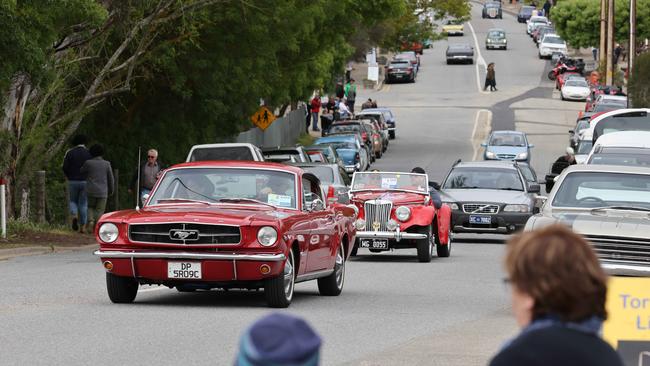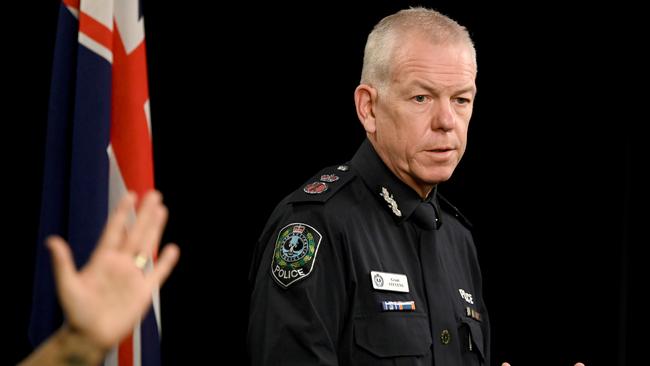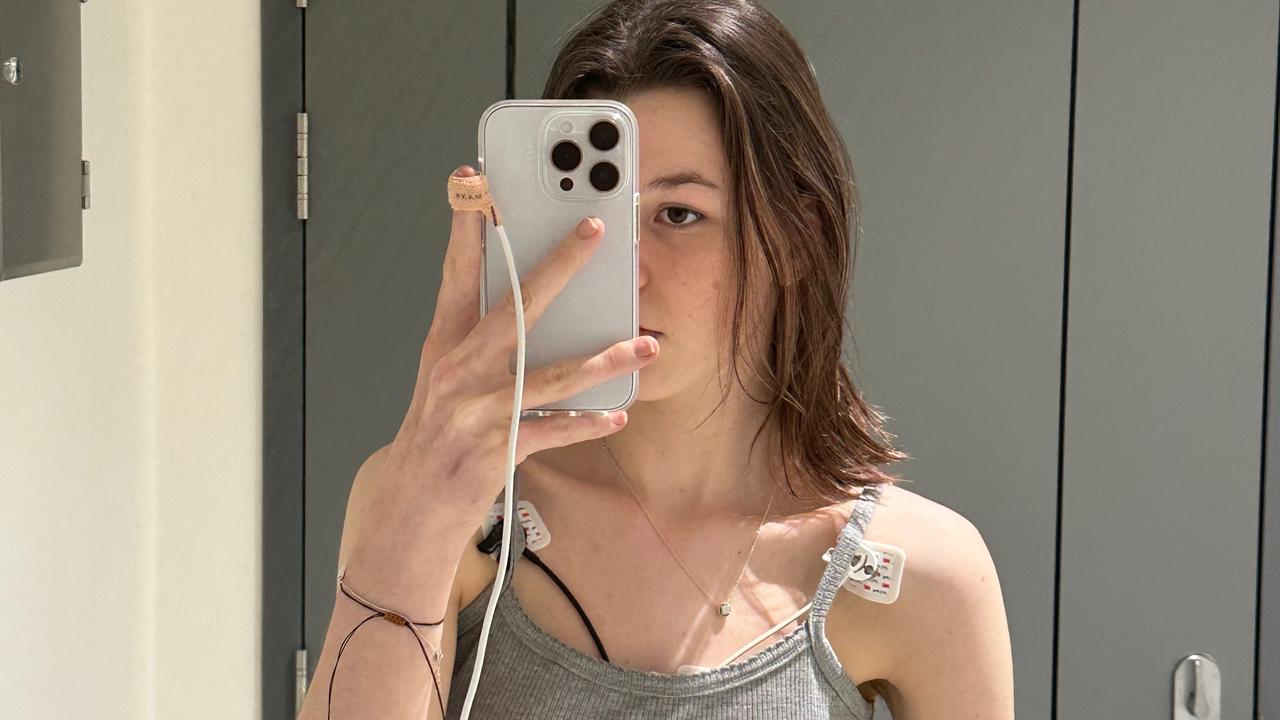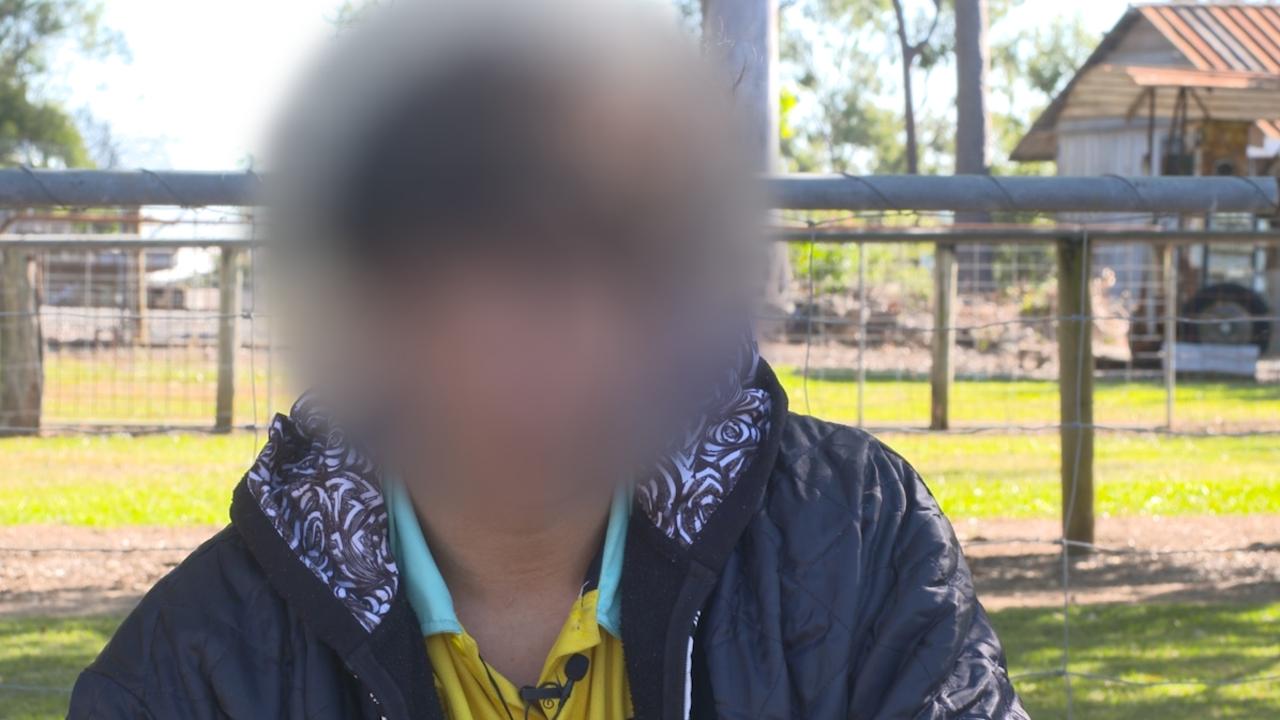SA borders to open once vaccination rates reach 80 per cent, mandatory vaccinations for essential travellers
Most essential workers travelling into SA from NSW, Victoria or the ACT will have to prove they’ve had at least one Covid vaccination. Replay the press conference
Coronavirus
Don't miss out on the headlines from Coronavirus. Followed categories will be added to My News.
Essential workers coming into SA from states with level six Covid restrictions – such as NSW and Victoria – will be required to have had at least one vaccination, the Premier says.
REPLAY THE PRESS CONFERENCE
Mr Marshall said the transition committee was aiming to making the jabs mandatory for essential travellers who are doing work during their 14 days quarantine. Transport workers will be exempt.
“We are going to be looking very carefully at those essential workers coming in from level 6 jurisdiction, doing work during their 14 days quarantine,” Mr Marshall said.
“We are working with different industry associations to make it mandatory for them (essential workers) to have at least one of the vaccination doses already.”
He said 50 per cent of South Australians 16 and over have now had at least one dose of a vaccine.
On AFL players entering SA from Delta-hit states, SA deputy chief public health officer Emily Kirkpatrick said SA Health would not require them to have vaccinations.
She said SA Health was working with the AFL on where entering AFL players would be accommodated while they were in SA this weekend.
“At this stage, vaccination is not part of their current exemptions,” she said.
“We know there is a high rate of vaccinations among the players already but we have not implemented that as part of our program.
“When we’re talking about vaccination of specialist workers is that these are individuals that are out and about undertaking their very important essential work so we need to reduce that risk as much as possible for people out in the community hence why we are putting in that requirement for vaccination for those particular workers.”
Mr Marshall said seated drinking at bars would be allowed later today, but the same bar cannot also serve drinks to people walking up and taking them away.
The change is designed mainly to benefit about 200 regional bars in SA.
SA Police Commissioner Grant Stevens said he remained highly concerned about Broken Hill and Wilcannia in regional NSW, where the Delta variant was infecting more people.
Meanwhile, the Premier has confirmed he is committed to supporting the reopening of Australia when the nation meets vaccination targets in coming months, despite resistance from other state leaders.
Prime Minister Scott Morrison on Monday warned that states needed to back the national cabinet plan to start opening up once vaccine targets hit 70 and 80 per cent or “we stay in the cave forever”.
This came as Queensland and Western Australia’s premiers reserved their right to enforce hard border closures.
WA Premier Mark McGowan said the pressure from Mr Morrison for his and other states to ease border restrictions and abandon lockdowns when vaccination rates hit between 70 and 80 per cent failed to appreciate what was happening in the rest of the country.
“This is a time for cool heads. We don’t need rash decision-making on the basis of what is occurring in NSW. There is an Australia outside of NSW,” Mr McGowan said.
“Just because the NSW government has made a mess of it doesn’t mean the rest of us should suffer.”
But as national cabinet appeared to split along party lines, Mr Marshall joined fellow Liberals Mr Morrison and NSW Premier Gladys Berejiklian in supporting the national approach.
Asked if the South Australian government was committed to opening up at 70 and 80 per cent vaccination rates, Mr Marshall declared the state would stick to the plan signed off by national cabinet on July 30. Once inoculation hits 80 per cent, the national cabinet plan sets a goal to “minimise cases in the community through ongoing low-level restrictions” and effective testing and tracing.
“Right since day one in SA, we’ve listened to that expert advice. The science, that evidence from the experts, has informed that national cabinet position,” Mr Marshall said.
“As we move forward, we know that as vaccination rates go higher, the transmissibility of the disease will go lower, the potential for people to acquire it is lower, and when they do get it, it will be with much lower symptoms, lower hospitalisation, lower admission to intensive care and, of course, a much lower chance of dying.” The challenge for Mr Marshall will be public resistance if vaccination targets are met and borders are opened, weeks ahead of the March 19 state election, while daily case numbers remain high in the eastern states.
Mr Marshall backed present hard state border closures, declaring the Delta variant would overwhelm the health system if they were not in place because of NSW’s increasing case numbers.
But he recommitted to the Doherty Institute’s recommendation to “move away from the lockdown arrangements to try to eliminate community transmission” once inoculations hit 70 and 80 per cent. Mr Morrison said the reopening plan was “our pathway to living with this virus” because serious illness numbers would be the key measure once vaccination rates reached 70 per cent.
“It is always darkest before the dawn, and I think these lockdowns (in NSW and Victoria) are demonstration of that, but the dawn is not far away and we are working towards that dawn and we are hastening towards the dawn,” he said.
“We should not delay it. We should prepare for it. We should not fear it. We should embrace it. And we should move forward together.”
Why SA’s top cop says we have to get used to tough rules
Easing South Australia’s Covid-19 restrictions is becoming increasingly difficult due to escalating risks from the Delta variant spreading interstate, the state’s top cop has warned.
The coronavirus transition committee will on Tuesday debate various public activity directions, such as venue density and crowd rules, as well as border bans.
On Monday afternoon it was announced the Bay to Birdwood car parade would not go ahead this year.
National Motor Museum Director Paul Rees said the growing uncertainty was behind the decision.
“ … With over 20 per cent of our participants registering from interstate, we know that keeping South Australians safe is our most important job right now,” Mr Rees said.

Police Commissioner Grant Stevens has warned any major changes to ease restrictions, such as boosting capacity, were unlikely although officials were open to tinkering with rules.
Mr Stevens, who authorises all legal directions based on the committee’s decisions, said it was “sad reality” about the NSW and Victoria risks that would likely trigger a new SA outbreak.
Authorities hold particular concerns about Delta spreading through remote Indigenous communities.
Mr Stevens, the state Covid-19 co-ordinator, said it was too difficult to forecast decisions that needed updated advice from chief public health officer, Professor Nicola Spurrier, which was then balanced with economic and social data.
“The numbers that we’re seeing in Sydney, and now Victoria, I think we need to recognise that we’re probably getting to a point – very close to a point – where further relaxation of the public activities direction is going to be more difficult,” he said.
“(This is) because we’re very concerned about the potential for seeding into South Australia.
“We can’t get away from that.”
Public directions are rules for businesses, venues, gatherings and crowds that dictate capacity, people limits, QR codes and mask use.
At present, venues, such as pubs, restaurants and cinemas, can allow three people per 4sq m, retail is at half capacity, while gyms and other indoor fitness venues are capped at a quarter of normal customers.
Last Friday, the committee doubled home gathering limits from 10 to 20 while private gatherings outside the home – but not at a licensed premises – are still capped at 50.
Standing up drinking is allowed if there is one person per 2sq m.
Other changes were made to private functions but mask use will stay for the foreseeable future.
Mr Stevens launched a hard border with Victoria from Sunday night while NSW, and ACT, travel is also heavily restricted.

Officials hold particular concerns about growing numbers of cases in the NSW far west including Broken Hill and Wilcannia, with its serious implications for the Riverland.
The NSW cluster of 28 patients, which includes four Broken Hill cases, is linked to a super spreading Wilcannia funeral that had a high Indigenous attendance.
After another three cases emerged on Monday, NSW Health urged anyone who has visited Wilcannia in recent days to get tested regardless of symptoms.
Mr Stevens said there was “significant concern” about the funeral and its links to “vulnerable communities including the Indigenous community”.
“There are some concerns about that potential spread into South Australian Indigenous communities,” he said.
“I think it is further evidence … this virus doesn’t restrict itself to a wider metropolitan area. “The potential for a spread throughout a jurisdiction is very real.
“You could argue in some respects people who live … in proximity with our borders with Victoria and NSW, maybe at greater risk of … being exposed than in the greater Adelaide area.


